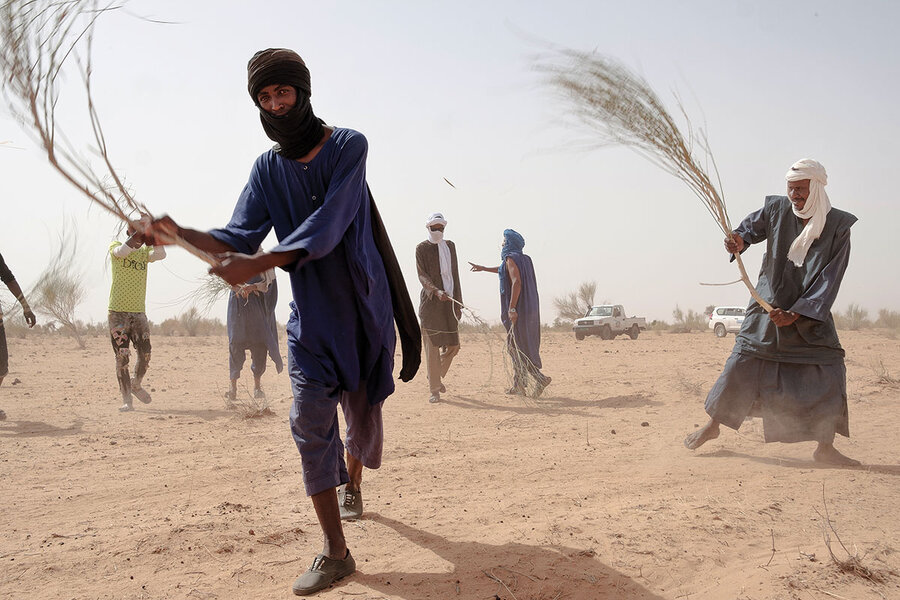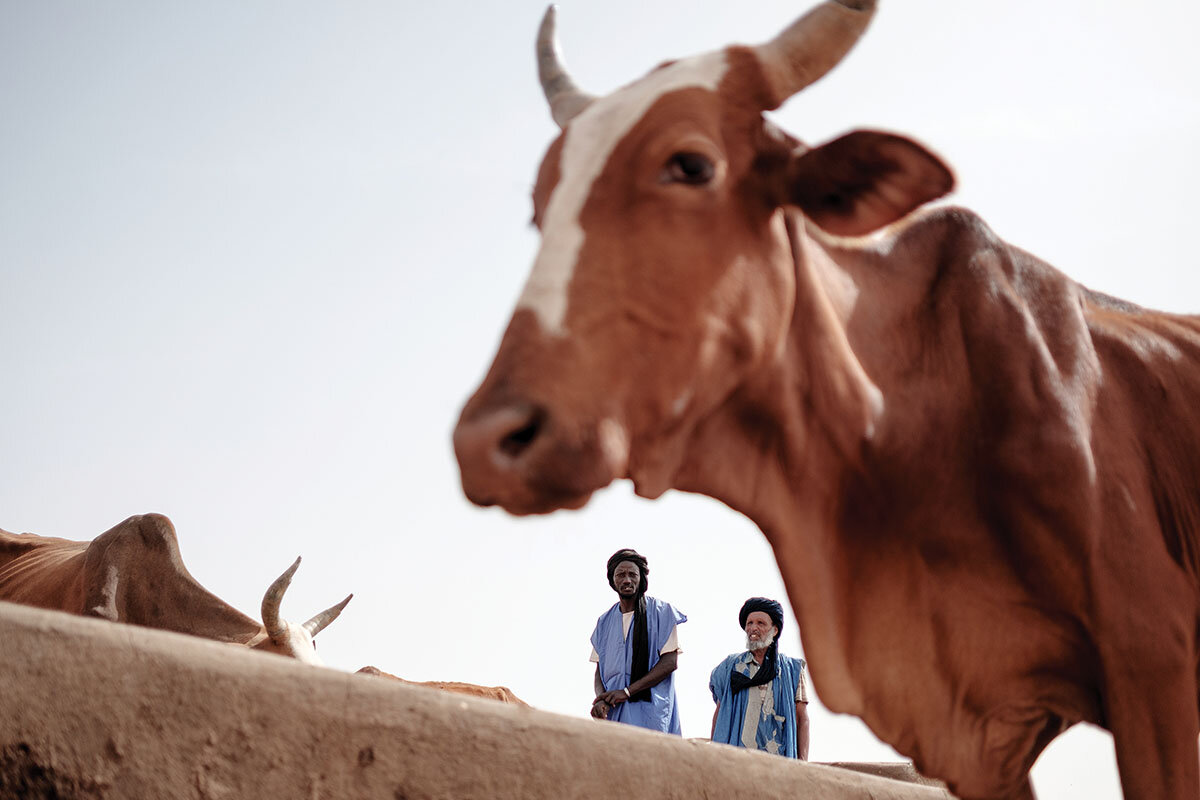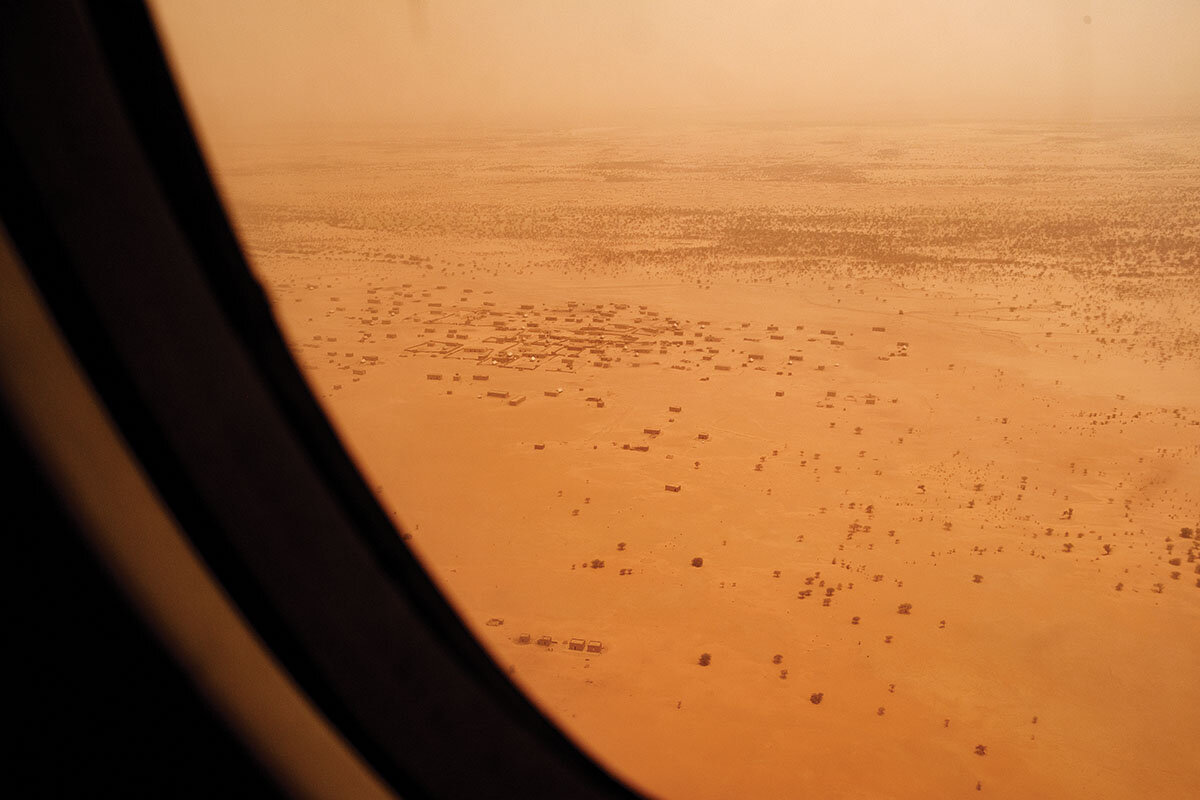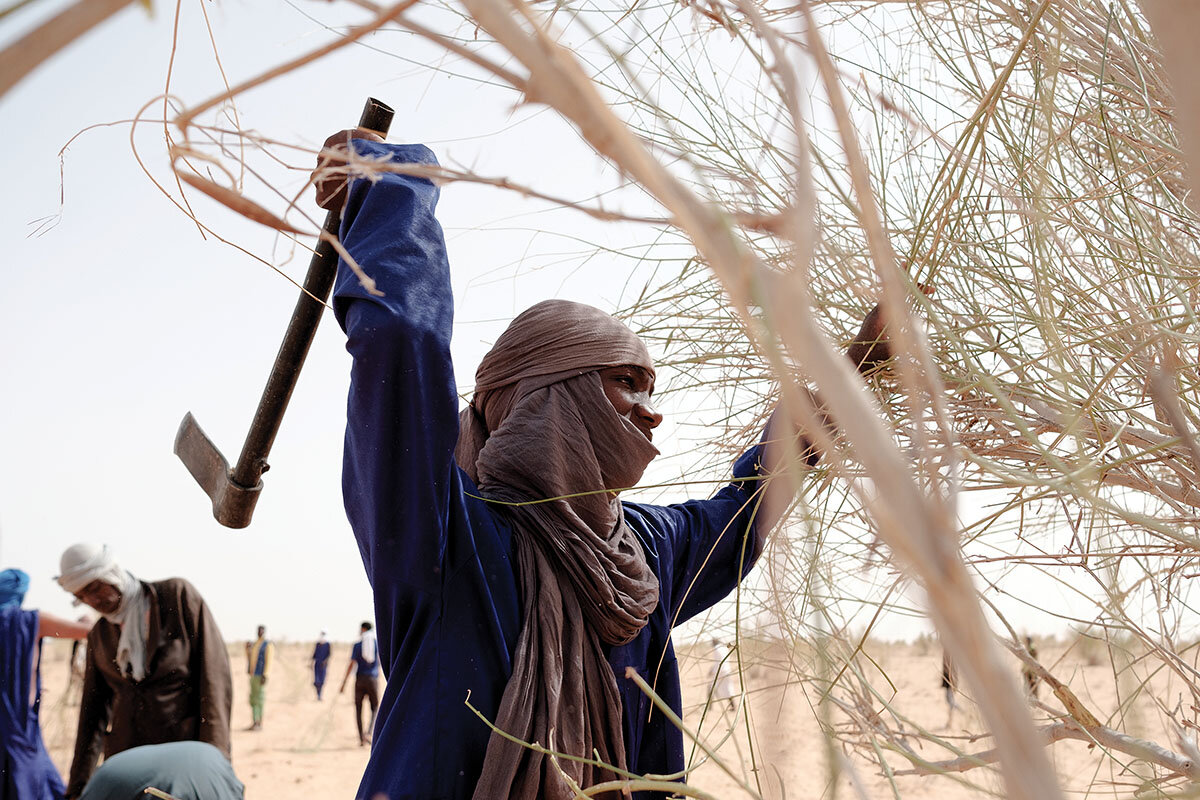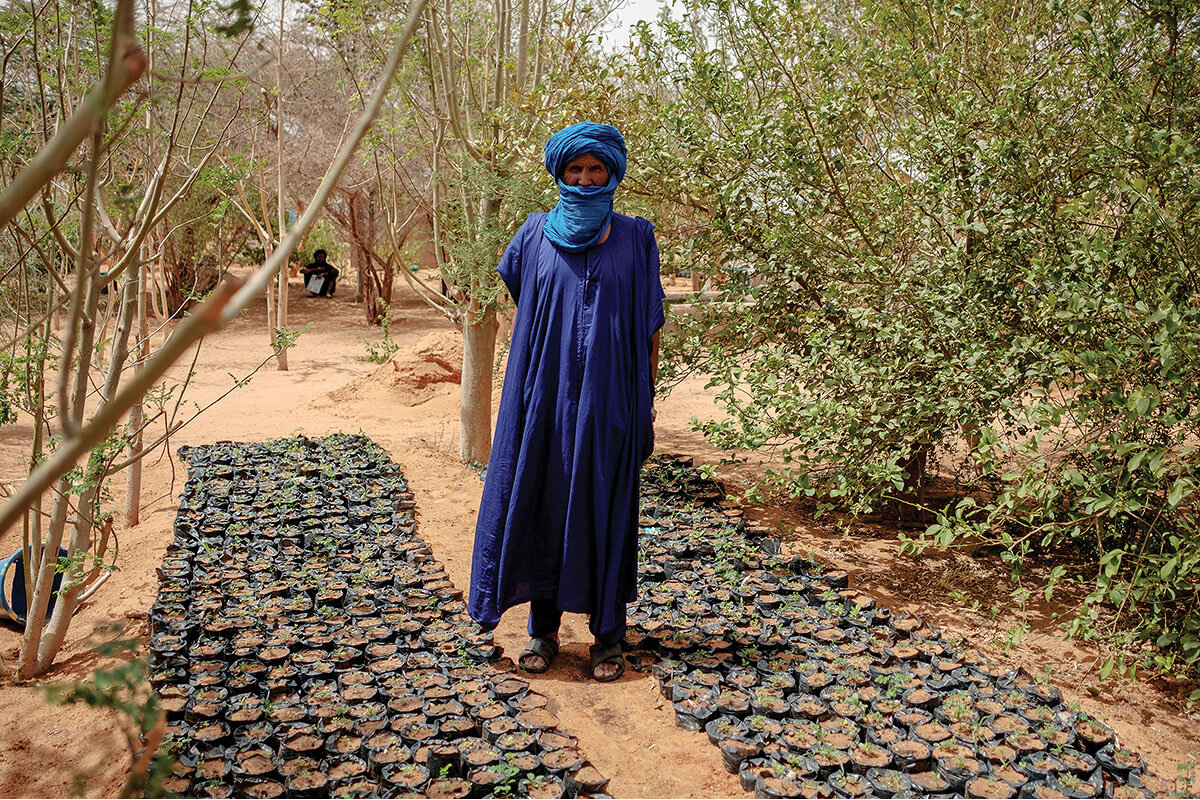In Pictures: The refugee firefighters of Mauritania
Loading...
| Mbera refugee camp, Mauritania
The axes make a thwuck, thwuck, thwuck sound as a group of Malians hacks off limbs from a thick, bushlike tree. But they’re not here to destroy nature – they’re here to save it.
Whooping, yelling, and letting out an errant “Allahu akbar!” they rush into formation, using the branches to bat and sweep away the wildfires that pop up in this harsh, arid strip of scrubland in Mauritania just below the Sahara desert.
Fortunately, this time there’s not an actual fire – though the temperatures, climbing past 110 degrees Fahrenheit, might make one think otherwise. Today is just a practice run.
Why We Wrote This
A story focused onFor these Malian refugees, fighting wildfires is a way to show gratitude toward their Mauritanian hosts. Overcoming this shared challenge has also brought the two groups closer together.
Last fire season, which generally runs from October to February, volunteers with the Brigade Anti-Feu (“anti-fire brigade”) helped put out 36 fires across this stretch of rural Mauritania, says founder Ahmedou Ould Boukhary. The year before, 58. But while they know this patch of lightly rolling hinterland well, they aren’t from here. The brigade is composed of Malian refugees, who’ve fled the decadelong conflict in their homeland.
“The Mauritanians ... came; they welcomed us,” says Mine Hamada, one of the brigade leaders. “What can we do [to pay back] Mauritania? What’s needed to protect the environment? That’s where we had the idea to create this initiative.”
The group was started in 2013 and has grown into a well-oiled machine of 500 volunteers who regularly field calls for help from Mauritanian towns – sometimes 20 miles away. Local Mauritanian volunteers often join them, creating a bond between the hosts and their guests.
Last season’s fires were fewer partly because of a shorter season caused by an influx of 800,000 heads of livestock brought by refugees fleeing Mali. The animals snacked on trees and shrubs along the way, reducing the amount of available fuel.
The last fire that Malian volunteer Moha Ag Assadeck fought was Feb. 4, from 1 p.m. to 7 p.m. under the Sahelian sun.
Was it hot?
He simply laughs.




